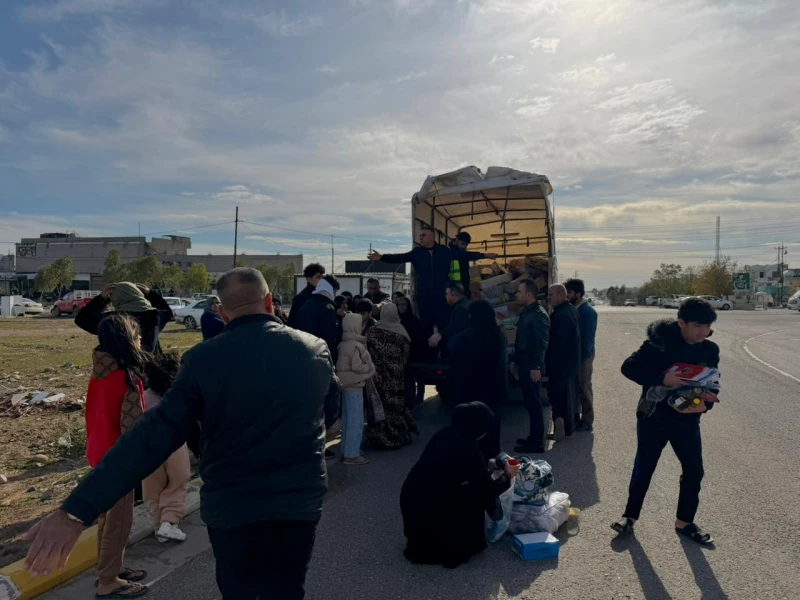DUHOK, Kurdistan Region of Iraq - Between the hills and valleys of the Batifa region in the northern part of the Dohuk province, Mohammad Fadel grazes his flock of sheep on land dense in wild vegetation taking sustenance from the Khabur River running through the region.
This environment has been at the center of his daily life for years. Due to drought and lack of grazing land, he was forced to sell his sheep in the Qayrawan district southwest of Mosul and come to this area to support his family.
Here he has been able to continue working as a shepherd.
Fadel, 55, has been working as a shepherd for seven years in the village of Kharkhabka in the Bativa district, in the Duhok province of the northern part of the Kurdistan Region of Iraq. He has since arriving started working in a partnership with one of the natives of the region in a sheep husbandry project as well, which helped improve his living conditions.
“The drought that struck our region forced me to sell my sheep at a low price after a number of them died and others suffered poor health due to the drought, lack of pastures, and high prices of fodder in our region,” he told The New Region in an interview in mid-November.
“The severity of the drought caused great losses to me and forced me to come here and work as a shepherd in this village,” he added.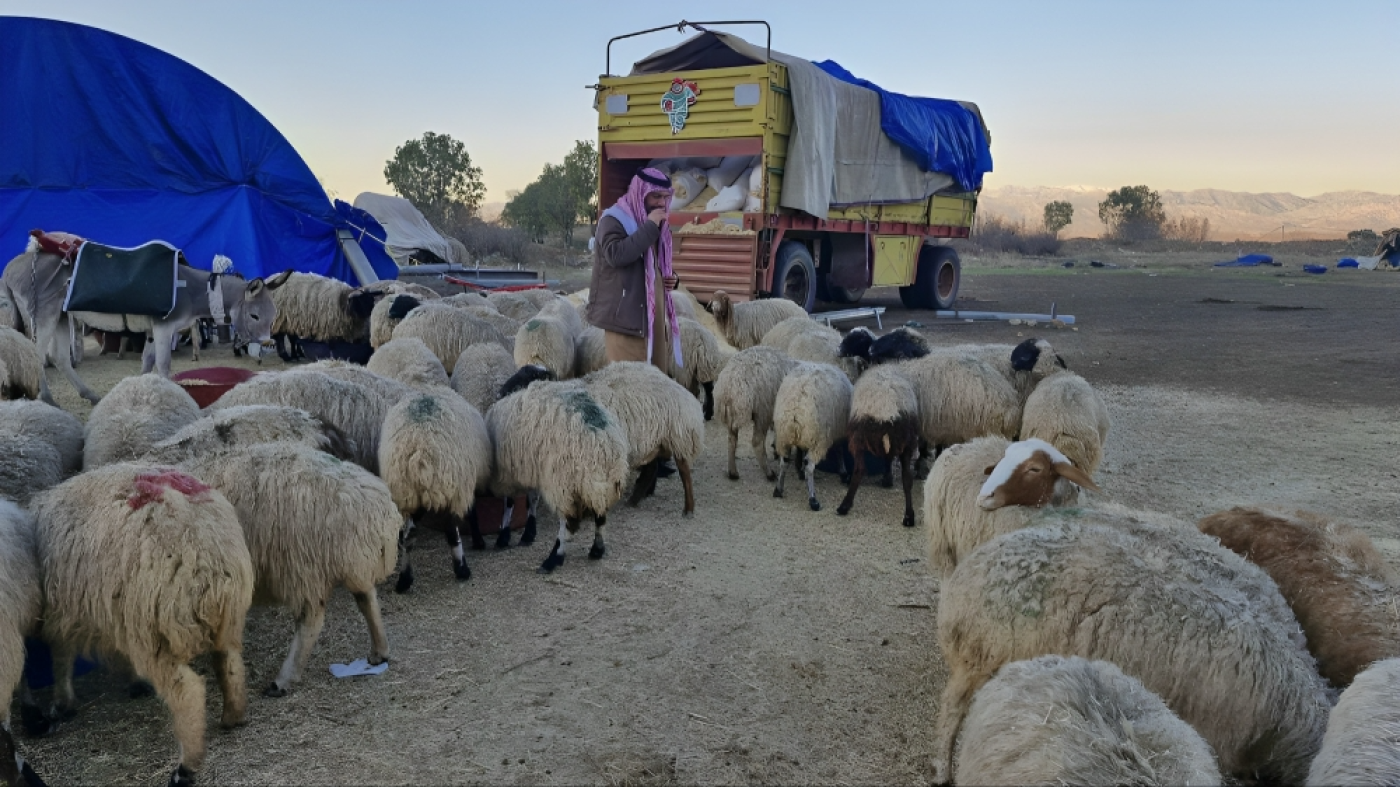
“When I first came to the region, I worked as a shepherd for a livestock owner for a salary of 600,000 Iraqi dinars per month. I am now working with him as a partner in a sheep husbandry project,” he said, stressing that “my living conditions have improved significantly. I have a house to live in and my own car. I also own over 150 sheep now, after coming here with nothing but a few personal belongings.”
Between mountains and plains, experience and skills
Fadel discussed the practice of working as a shepherd in mountainous areas with that in the plains, noting that there is a significant difference in the process of raising sheep and livestock, as it requires shepherds in mountainous areas to be physically fit and knowledgeable about the area: its topography, water sources, and the quality of plants and herbs suitable for food for livestock, as well as methods of protecting livestock from the cold, attacks from wild animals, and from insects.
Caring for livestock in the harsh days of winter and snowfall in rugged mountainous areas, he noted, requires specific skills.
The improvement of Fadel’s living conditions prompted a number of his relatives to come here in search of better pastures or to work as shepherds for sheep owners.
He noted that three of his brothers and two of his cousins now work as shepherds in a nearby village, adding that drought and a lack of water resources had negatively affected livestock breeders in the Nineveh province in recent years.
This led to immense financial losses and forced many of them to sell their livestock at low prices as they no longer had the financial means to continue raising them and buying fodder at elevated prices.
Some have left the profession and move on to other jobs, while many others have been left jobless. This prompted many livestock owners to head to the Kurdistan Region in search of pastures to preserve the remainder of their livestock.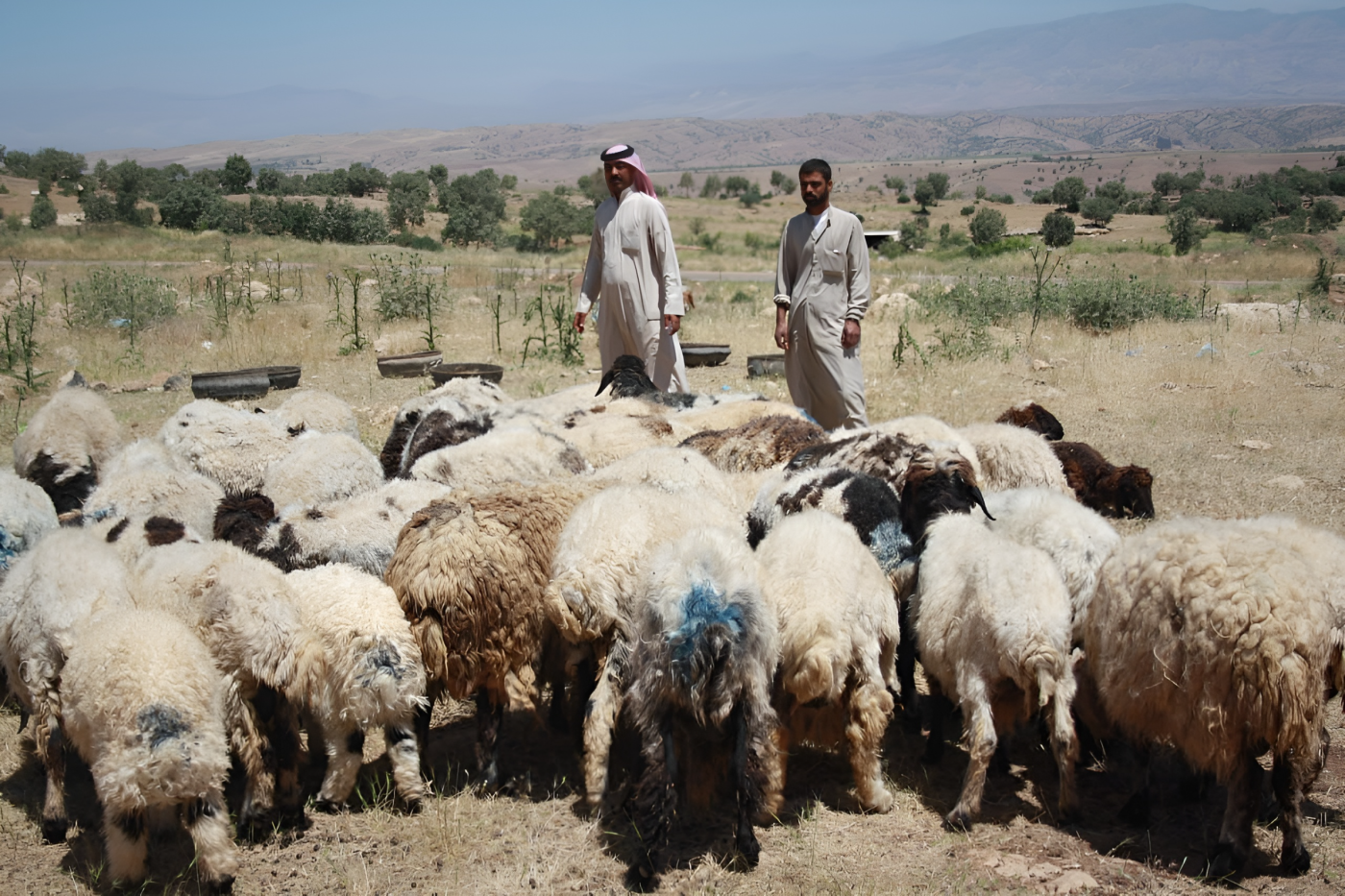
Sponsors and partners
A lack of water due to drought and other reasons has in recent years encouraged hundreds of livestock breeders in the governorates of Nineveh, Salah al-Din, Diyala, and others to head towards the Kurdistan Region to try their luck there.
According to an official of the Kurdistan Farmers’ Union in the Zakho district along the border with Turkey, Sarbast Silivani, many shepherds come especially from the Nineveh and Salah al-Din provinces.
He noted, however, that no precise figures exist on how many of them there are since they frequently move from one place to another.
Silivani says that some people working in the field of sheep husbandry coming from other Iraqi provinces work here as partners with the owners of local projects, while others simply work as shepherds for monthly salaries. There are also some other Arab livestock owners who rent pastures from the residents of the villages in the area to graze their sheep in.
Many livestock and sheep breeders rely on Arab shepherds because of the valuable experience that they bring with them, he said.
Shift from shepherding to working in security
Ahmed Jassim, 58, who is also from the Qayrawan district of the Nineveh province, said that he and his brother had had a flock of over 700 sheep about five years before.
Drought, a lack of pasture land, and high fodder prices then forced them to sell off the sheep at low prices.
Jassim told The New Region that he had left the herding profession and got a government position instead in order to support his family.
He stressed that the sector had suffered immense losses from both drought and the international terrorist group calling itself the Islamic State of Iraq and Syria (ISIS), which starting in 2014 swept through the region and destroyed pastures, sheep and water sources after they took control of the region and prior to being pushed out in 2017.
These conditions prompted many livestock and sheep breeders to move to other locations for better pastures, including the Kurdistan Region, to graze their sheep there.
He went on to note that the drought that struck the region forced many livestock owners to leave the trade and either shift to a different sector or to sign up for the security forces and work in the government.
Drought threatens Kurdistan
The Kurdistan Region was however not immune to the damage caused by waves of drought over the past few years, which significantly affected agriculture and livestock raising in several areas.
Hit especially hard was the Garmian area in the southern part of the Sulaymaniyah province along Iraq’s border with Iran. People from this area say that many green pastures have become barren land and that breeders have been forced to sell off their flocks at low prices there, as well.
Kurdistan Water Organization chief Abdullah Barbiri told The New Region that three areas in the Kurdistan Region had been classified as having pastureland but that rainfall varies greatly between them.
One is in the Garmian region south of Sulaymaniyah, which records annually between 150 and 200 millimeters. Another is the Zilka area, which lies on the line between the southern part of the Dohuk province and Erbil and where rainfall totals between 400 and 600 mm annually. Then, he added, there are mountainous areas that have guaranteed rainfall and which have not been affected by drought.
Farmers in the Garmian region and especially those involved in sheep breeding have instead suffered significant losses as a result of the drought, with many forced to sell off their livestock at low prices or leave the profession due to the lack of water resources.
He added that the Kurdistan Regional Government had built many dams in the region for the purpose of harvesting and making use of rainwater.
Fears and warnings
UN forecasts indicate Iraq will be severely impacted by the effects of climate change.
According to a UN report published in 2022, “Model projections indicate an increase in mean annual temperature of 2°C by 2050, and an increase in the occurrence of extreme temperatures above 50°C by 2100. In southern Iraq, such extremes will last up to 21 consecutive days. High temperatures and heatwaves have an impact on livelihoods, food insecurity, and health risks, which in turn contribute to displacement.”
The warnings have been coming for quite some time, however.
According to a 2017 World Bank Systematic Country Diagnostic on Iraq, “Between 1970 and 2004, Iraq’s annual mean temperature increased by 1 to 2 degrees Celsius. Due to frequent droughts and a decline in precipitation, salinization has intensified through greater evaporation and water shortages. Extreme weather and a scarcity of resources exacerbated by climate change combined with ineffective government services has heightened conflict in Iraq. In addition, the impact of global action on climate change for fossil fuel exporters such as Iraq is likely to add a further significant layer of uncertainty for Iraqi policymakers.”
Water strategy and policy expert Ramadan Hamza told The New Region in an interview in mid-November that climate change effects would increase with the rise in population rates, leading to a surge in economic and social risks to the country.
He added that drought during several of the past years has been harsh and unprecedented for farmers of the western part of Iraq’s northwestern Nineveh region. This region, he noted, includes vast areas of agricultural land that depends mainly on rainwater. Until the end of the 1990s, he noted, the region was commonly referred to as the “breadbasket of Iraq” due to its grain production.
However, many farmers in the region were forced to abandon agriculture and animal husbandry after accruing significant debt to pay the expenses involved in their work without receiving adequate return on this investment due to the lack of water resources and drought.
This led to the displacement of the people of the region to cities and to more generalized instability. Iraq’s cities were not prepared for this massive influx, leading to instability.
The UN has classified Iraq as the fifth top country vulnerable to the effects of climate change. This in turn threatens food security, in a country seeing high rates of population growth.
Hamza noted that the population will be seriously at risk if the Iraqi government does not undertake integrated water management of its surface and groundwater resources.
New life and new ‘relatives’
Meanwhile, the shepherd Fadel yearns for his native Qayrawan but has no plans to return there. He noted that his new village had “embraced” him and that it had given him stability.
“My children have adapted to living here and they speak the Kurdish language,” he said, adding that “two women from our family also married men from the region. So now we are relatives, too.”

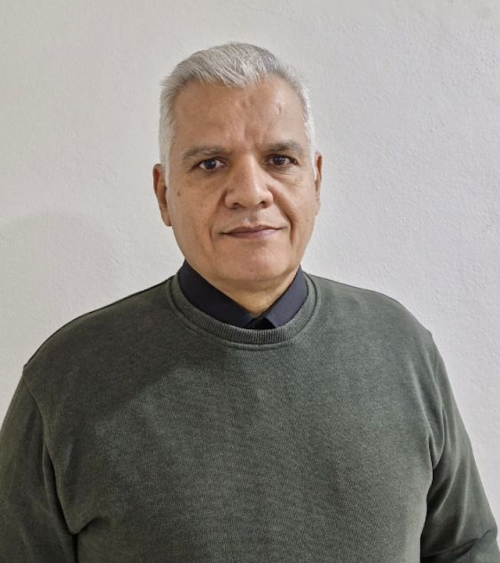
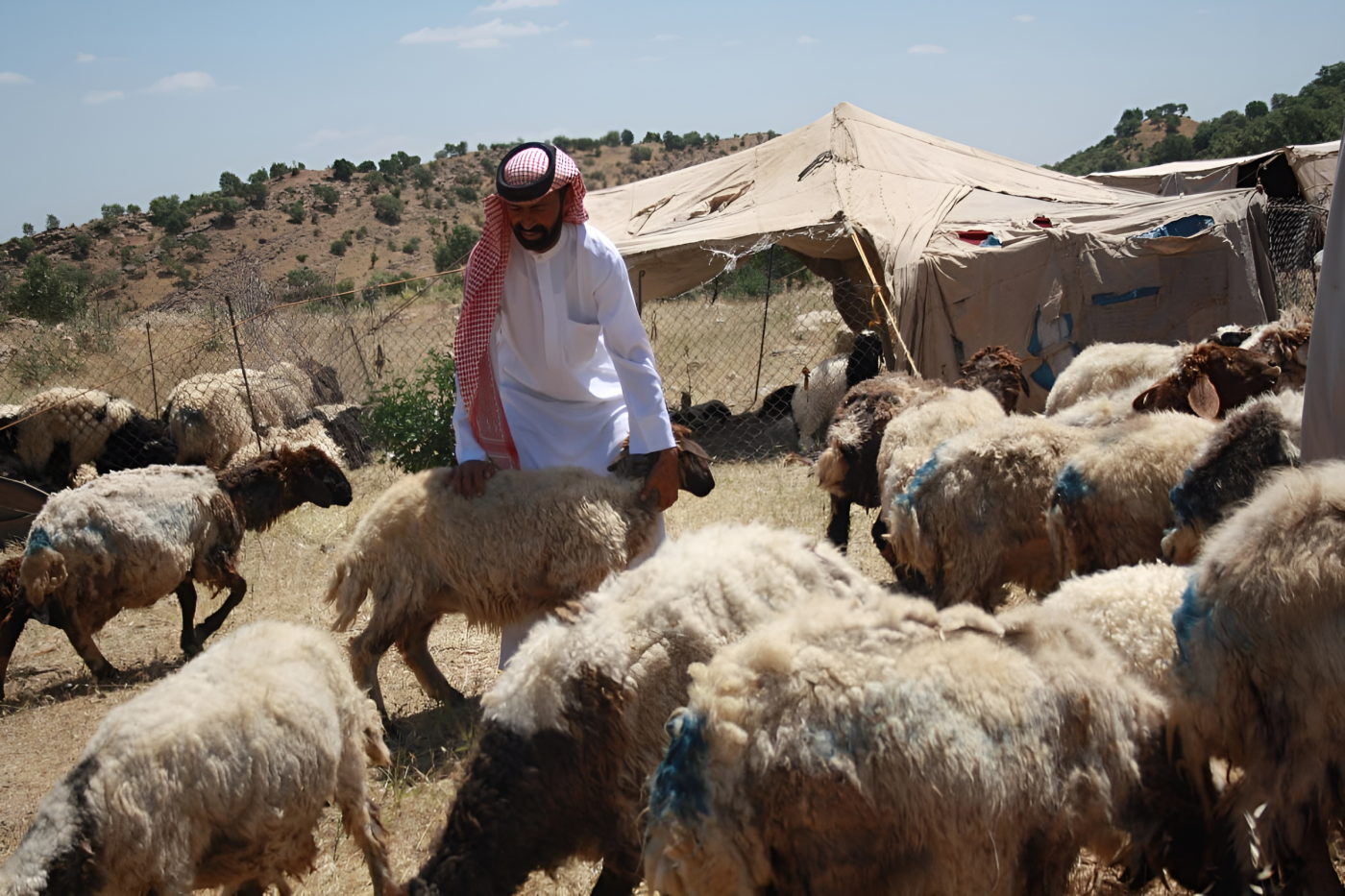
 Facebook
Facebook
 LinkedIn
LinkedIn
 Telegram
Telegram
 X
X
